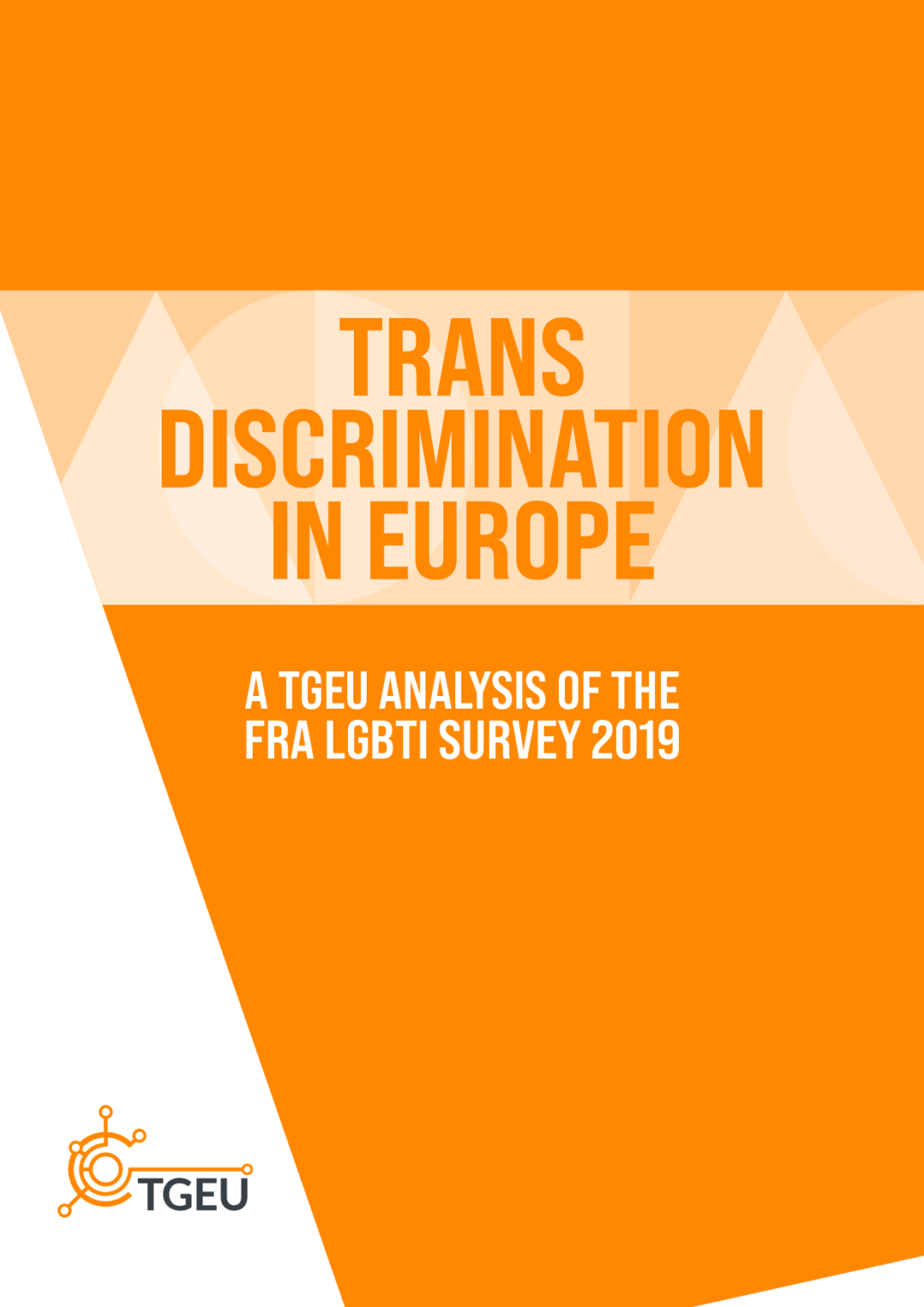TGEU Publishes Report on Trans Discrimination in Europe

Race, gender identity, migration status, disabilities, and other characteristics are variables that intersect and make the life experiences of the trans people highly diverse and often difficult. The report Trans Discrimination in Europe. A TGEU analysis of the FRA LGBTI Survey 2019 discusses the socio-demographics of trans communities in Europe, the impact they have in their quality of life, and the degrees of violence, discrimination, and harassment that these communities often experience.
Why this report?
Historically, trans people have been excluded from most areas of society due to systemic and cultural transphobia and cisnormativity. These forms of discrimination, violence and harassment impact disproportionally the most marginalised members of the community, such as trans women and trans femmes, trans Black people and trans people of colour, trans sex workers, undocumented trans migrants, trans asylum seekers and refugees, trans youth, and trans people with disabilities.
The confluence between racism and anti-Blackness, xenophobia, ableism, misogyny, and transphobia, create such a hostile environment for the above mentioned communities, and limits their access to formal education, stable employment, economic stability and access to housing. This report has an intersectional approach, and highlights the experiences of trans people who face the most marginalisation.
What can I find in it?
The analysis is made from selected data from the LGBTI survey 2019 conducted by the European Union Agency for Fundamental Rights (FRA), and has the largest sample of trans people in Europe to date.
Among the key findings, we see that:
- Trans respondents are less satisfied with their lives than the EU average.
- 1 in 3 trans people are open about their identity. Young and non-binary people are the least open.
- Trans people are more likely to be unemployed or out of the workforce than the average population.
- More than half of trans migrants and/or people with an ethnic background experienced some form of homelessness.
- 1 in 4 trans respondents is a parent.
- At least 1 in 4 respondents had experienced discrimination in central aspects of their lives.
- Trans people are more likely to experience harassment than their cis LGB peers.
- Trans women experienced the highest amount of harassment and violence among respondents.
- Disabled trans people and, in particular, disabled trans women, are more likely to be unemployed. Trans men are more likely to be amongst the working poor.
- Trans respondents did not often report to the police being victims of a crime due to lack of trust and belief that they could or would do something about it.
- It is less likely that trans people are religious.
Recommendations for the European Commission
The report presents a series of recommendations for the European Commission, such as:
- Ensure appropriate legal and policy framework for trans people, especially in matters of legal gender recognition and trans-specific healthcare.
- Target the socio-economic position of the most marginalised.
- Focus on trans youth.
- Ensure anti-discrimination legislation and the combat of violence and harassment has an intersectional scope, recognising that racial and gender minorities experience disproportionate oppression.
- Conduct further research that is more accessible and engages more meaningfully marginalised trans communities.